Learn more about our Affiliates
-
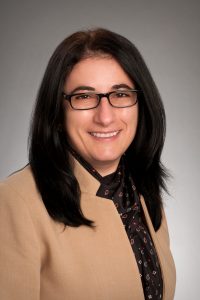
Liljana Babinkostova
Professor, Mathematics
Liljana Babinkostova is a Professor in the Department of Mathematics at Boise State University. The foundation of Babinkostova’s research is cryptography and cryptanalysis and their interplay with game theory, which are used for the development of tools and techniques that reduce risks to critical energy infrastructure posed by current and emerging cyber threats. In particular, her research focus is investigating the security of lightweight cryptographic protocols against algebraic and side-channel attacks, black-box cryptanalysis and developing a formal framework for modeling and reasoning about security in the presence of quantum attacks. Since 2012 Dr. Babinkostova is a councilor of the American Association for the Advancement of Science–Pacific Division (AAAS-PD). She received her BS in Computer Science and Mathematics, and her PhD in Mathematics from The Cyril and Methodius University in Northern Macedonia.
Boise State UniversityLiljana Babinkostova is a Professor in the Department of Mathematics at Boise State University. The foundation of Babinkostova’s research is cryptography and cryptanalysis and their interplay with game theory, which are used for the development of tools and techniques that reduce risks to critical energy infrastructure posed by current and emerging cyber threats. In particular, her research focus is investigating the security of lightweight cryptographic protocols against algebraic and side-channel attacks, black-box cryptanalysis and developing a formal framework for modeling and reasoning about security in the presence of quantum attacks. Since 2012 Dr. Babinkostova is a councilor of the American Association for the Advancement of Science–Pacific Division (AAAS-PD). She received her BS in Computer Science and Mathematics, and her PhD in Mathematics from The Cyril and Methodius University in Northern Macedonia.
-

Geoff Black
Professor, Economics
Geoff Black is a Professor of Economics at Boise State University. His primary research interests relate to natural resource and energy economics and regional development issues. He performs research on energy and economic development, including studies on the economics of small modular reactors (SMRs), the impacts of energy development on economic activity and tax revenues, and the economic impacts of large federal R & D facilities. In this latter field, he has performed several studies on the economic impacts of the Idaho National Laboratory on the regional economy as well as the development of an SMR industry in the United States. He received his PhD. in economics from the University of Washington in 1995, with specialties in public finance and environmental and natural resource economics. He also holds Master of Science degrees in both Geology and Resource Economics.
Boise State UniversityGeoff Black is a Professor of Economics at Boise State University. His primary research interests relate to natural resource and energy economics and regional development issues. He performs research on energy and economic development, including studies on the economics of small modular reactors (SMRs), the impacts of energy development on economic activity and tax revenues, and the economic impacts of large federal R & D facilities. In this latter field, he has performed several studies on the economic impacts of the Idaho National Laboratory on the regional economy as well as the development of an SMR industry in the United States. He received his PhD. in economics from the University of Washington in 1995, with specialties in public finance and environmental and natural resource economics. He also holds Master of Science degrees in both Geology and Resource Economics.
-

R. A. Borrelli
Associate Professor, Nuclear Eng.
Bob Borrelli is an Associate Professor in the nuclear engineering program at the University of Idaho. His research interests include advanced fuel cycle analysis and risk assessment. This includes developing methodologies to optimize proliferation resistance and physical protection with the safety and security for the advanced nuclear fuel cycle, nuclear hybrid energy systems modeling and transportation of advanced nuclear reactor components, nuclear cybersecurity and plant modernization, radioisotope thermoelectric generator (RTG) satellite design for deep space missions, and risk assessment of disruptions to the grid. Dr. Borrelli has a BS in Mechanical and Nuclear Engineering, and an MS in Civil and Environmental Engineering from Worcester Polytechnic Institute, where he was also an NRC licensed Senior Reactor Operator at the Leslie C. Wilbur Nuclear Reactor Facility. He received his Ph.D. in Nuclear Engineering at UC-Berkeley, working in high level nuclear waste management. He completed additional work at The University of Tokyo, and UC-Berkeley for post-doctoral research in the field of safeguards, safety, and security.
University of Idaho, Idaho FallsBob Borrelli is an Associate Professor in the nuclear engineering program at the University of Idaho. His research interests include advanced fuel cycle analysis and risk assessment. This includes developing methodologies to optimize proliferation resistance and physical protection with the safety and security for the advanced nuclear fuel cycle, nuclear hybrid energy systems modeling and transportation of advanced nuclear reactor components, nuclear cybersecurity and plant modernization, radioisotope thermoelectric generator (RTG) satellite design for deep space missions, and risk assessment of disruptions to the grid. Dr. Borrelli has a BS in Mechanical and Nuclear Engineering, and an MS in Civil and Environmental Engineering from Worcester Polytechnic Institute, where he was also an NRC licensed Senior Reactor Operator at the Leslie C. Wilbur Nuclear Reactor Facility. He received his Ph.D. in Nuclear Engineering at UC-Berkeley, working in high level nuclear waste management. He completed additional work at The University of Tokyo, and UC-Berkeley for post-doctoral research in the field of safeguards, safety, and security.
-
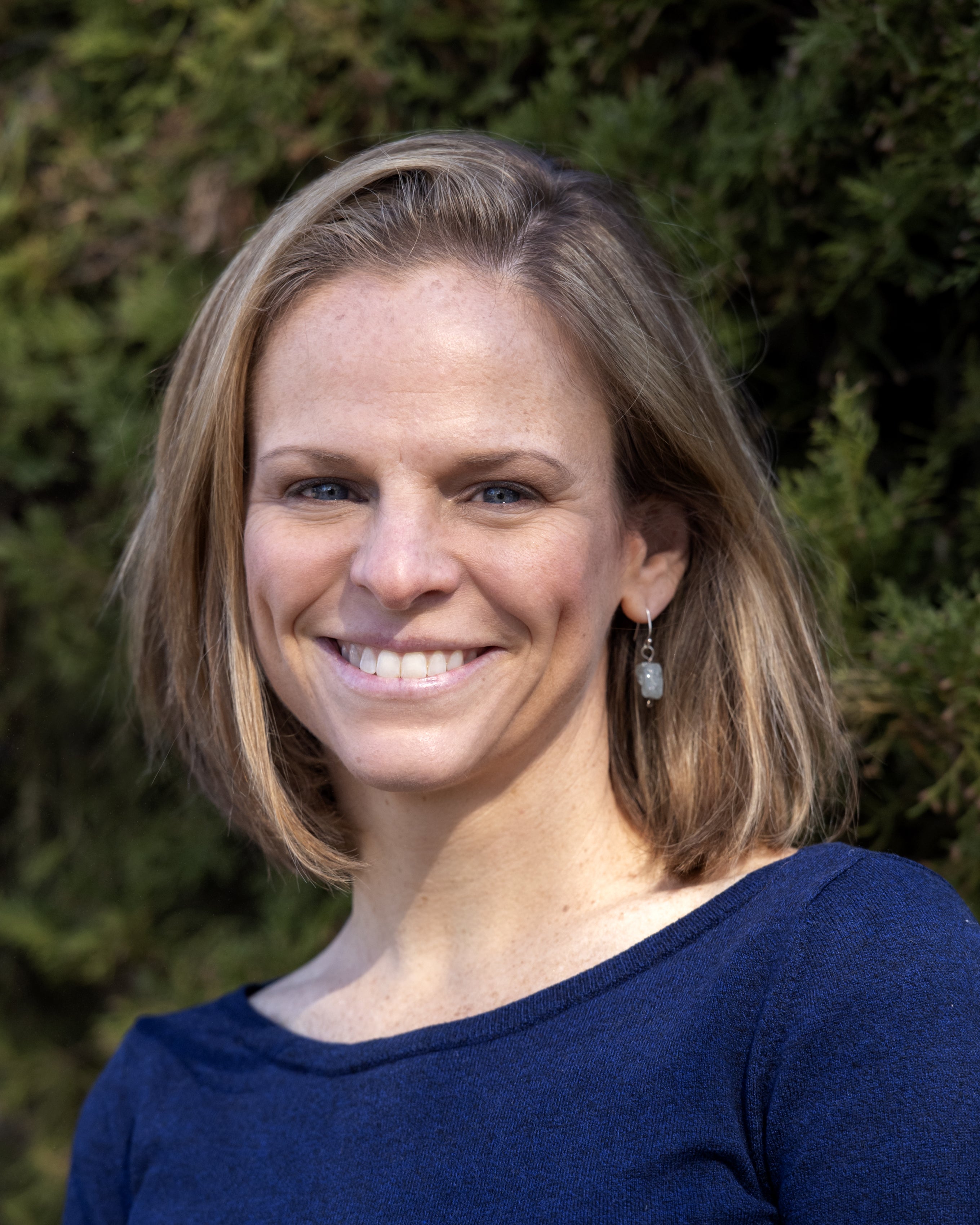
Brittany Brand
Associate Professor, Geosciences
Brittany Brand is an Associate Professor in Geosciences and Director of the Hazard and Climate Resilience Institute. She works to bridge the gap between science and society through outreach, education, and research. Her research in natural hazard communication strategies and preparedness behavior explores the influence of cultural variables, perceptions, and adequacy of hazard information on household emergency preparedness. Additional research interests include eruption dynamics, sediment transport in volcanic flows and volcanic hazard assessment. The foundation of Brand’s research is field-based observation and measurements, which are used for development and validation of experimental and numerical models.
Boise State UniversityBrittany Brand is an Associate Professor in Geosciences and Director of the Hazard and Climate Resilience Institute. She works to bridge the gap between science and society through outreach, education, and research. Her research in natural hazard communication strategies and preparedness behavior explores the influence of cultural variables, perceptions, and adequacy of hazard information on household emergency preparedness. Additional research interests include eruption dynamics, sediment transport in volcanic flows and volcanic hazard assessment. The foundation of Brand’s research is field-based observation and measurements, which are used for development and validation of experimental and numerical models.
-

Vince Bowen
Dept. Chair, ESTEC
Vince Bowen is the Executive Director/Dept. Chair of the Energy Systems and Technology Education Center (ESTEC) at Idaho State University. He began his career in the US Nuclear Navy, serving as a prototype instructor and as a nuclear electrician aboard the USS Phoenix, a nuclear submarine. He left the Navy as a Chief Petty Officer qualifying as an Engineering Watch Supervisor aboard the submarine. Following his Navy experience, he has worked at the Idaho National Laboratory at numerous locations and a variety of positions with the most significant positions including Nuclear Facility Manger of the Specific Manufacturing Capability (Abrams tank armor), Hot Fuel Examination Facility (post irradiation examination of nuclear fuel), Fuel Conditioning Facility (reprocess spent nuclear fuel), and Transient Reactor Test Facility (qualify fuel for Nuclear Regulatory Commission licensing). Additionally he qualified as a Senior Reactor Operator and Shift Supervisor at the Advanced Test Reactor.
Idaho State UniveristyVince Bowen is the Executive Director/Dept. Chair of the Energy Systems and Technology Education Center (ESTEC) at Idaho State University. He began his career in the US Nuclear Navy, serving as a prototype instructor and as a nuclear electrician aboard the USS Phoenix, a nuclear submarine. He left the Navy as a Chief Petty Officer qualifying as an Engineering Watch Supervisor aboard the submarine. Following his Navy experience, he has worked at the Idaho National Laboratory at numerous locations and a variety of positions with the most significant positions including Nuclear Facility Manger of the Specific Manufacturing Capability (Abrams tank armor), Hot Fuel Examination Facility (post irradiation examination of nuclear fuel), Fuel Conditioning Facility (reprocess spent nuclear fuel), and Transient Reactor Test Facility (qualify fuel for Nuclear Regulatory Commission licensing). Additionally he qualified as a Senior Reactor Operator and Shift Supervisor at the Advanced Test Reactor.
-
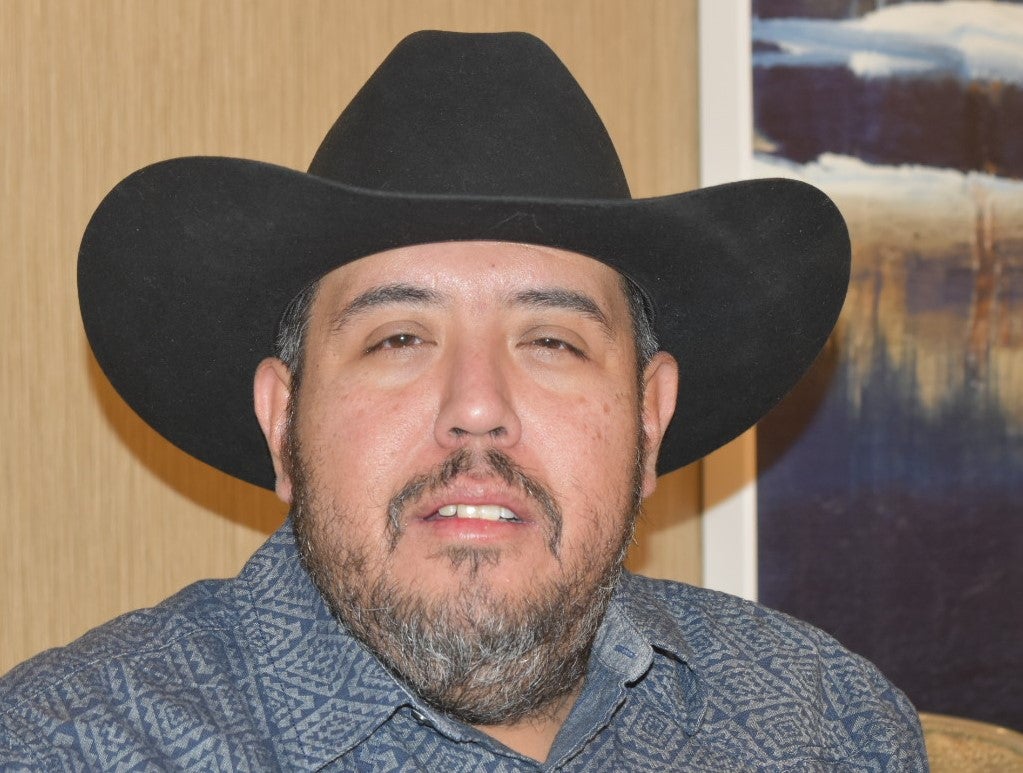
Daniel Cardenas
CEO, President, and Chairman of the Board
Daniel C. Cardenas Jr., is a member of the Hammawi Band of the Pit River Tribe of California and currently serves as the CEO, President, and Chairman of the Board of the American Indian Infrastructure Association and the National Tribal Energy Association, both trade associations representing the interests of Native American Tribes across the United States. He attended the University of California, Berkeley and served as an elected member of the Pit River Tribal Council, a Federally Recognized Tribe, representing the Hammawi Band from 1992-2016. He has owned and operated Hammawi Communications, a public relations firm, Shasta Advisors, a business consulting firm, and Sweetgrass Government Relations since 1999. Daniel served as a Principal with Yavapai Regional Capital for several years, where he developed Public Private Partnerships (PPP’s) in the Western United States. These projects included two rail projects, a bridge project, and a toll-road project. He is also the owner of Seven Generations Infrastructure, a tribal renewable energy infrastructure development firm. Daniel has served on various non-profit boards and co-founded the Wind River Community Foundation, and Knowledge River, an indigenous Energy STEM Initiative. Daniel serves on the Advisory Committee of the “Climate Equity and the Clean Energy Transition” Project sponsored by the Clean Air Task Force.
American Indian Infrastructure Association and the National Tribal Energy AssociationDaniel C. Cardenas Jr., is a member of the Hammawi Band of the Pit River Tribe of California and currently serves as the CEO, President, and Chairman of the Board of the American Indian Infrastructure Association and the National Tribal Energy Association, both trade associations representing the interests of Native American Tribes across the United States. He attended the University of California, Berkeley and served as an elected member of the Pit River Tribal Council, a Federally Recognized Tribe, representing the Hammawi Band from 1992-2016. He has owned and operated Hammawi Communications, a public relations firm, Shasta Advisors, a business consulting firm, and Sweetgrass Government Relations since 1999. Daniel served as a Principal with Yavapai Regional Capital for several years, where he developed Public Private Partnerships (PPP’s) in the Western United States. These projects included two rail projects, a bridge project, and a toll-road project. He is also the owner of Seven Generations Infrastructure, a tribal renewable energy infrastructure development firm. Daniel has served on various non-profit boards and co-founded the Wind River Community Foundation, and Knowledge River, an indigenous Energy STEM Initiative. Daniel serves on the Advisory Committee of the “Climate Equity and the Clean Energy Transition” Project sponsored by the Clean Air Task Force.
-
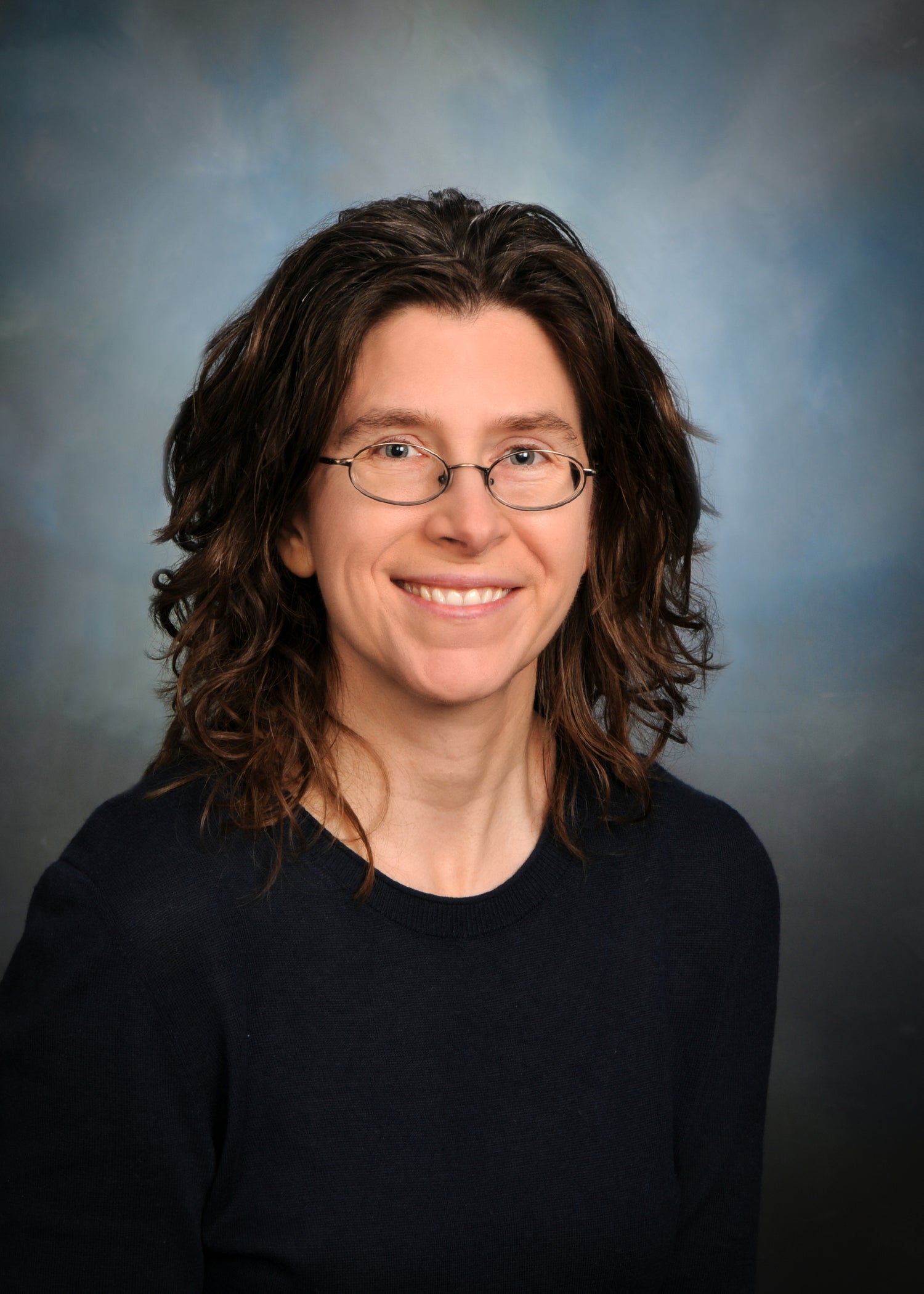
Alexis Clark
P.G. | Hydrogeologist
Alexis Clark is a hydrogeologist with the Idaho Geological Survey (IGS), serving as the IGS technical lead for hydrogeologic and geothermal research. IGS is a non-regulatory state agency that leads in the collection, interpretation, and dissemination of geologic and mineral data for Idaho. This work includes publishing geologic maps, conducting applied research in the fields of hydrogeology, hazards geology, oil and gas, minerals, geothermal, and public education and outreach. Alexis has a MS in hydrogeology from the University of Arizona and a BS in geology from Eastern Illinois University. Before joining IGS in February 2018, she spent nearly 20 years conducting groundwater supply and water quality investigations as a consulting hydrogeologist, working on projects throughout the western US.
Idaho Geological SurveyAlexis Clark is a hydrogeologist with the Idaho Geological Survey (IGS), serving as the IGS technical lead for hydrogeologic and geothermal research. IGS is a non-regulatory state agency that leads in the collection, interpretation, and dissemination of geologic and mineral data for Idaho. This work includes publishing geologic maps, conducting applied research in the fields of hydrogeology, hazards geology, oil and gas, minerals, geothermal, and public education and outreach. Alexis has a MS in hydrogeology from the University of Arizona and a BS in geology from Eastern Illinois University. Before joining IGS in February 2018, she spent nearly 20 years conducting groundwater supply and water quality investigations as a consulting hydrogeologist, working on projects throughout the western US.
-

Kipp Coddington
Chemical Engineer and Lawyer
A chemical engineer and lawyer, Kipp Coddington is a low-carbon technology and climate policy expert with commercial project and academic research leadership experience. He is an international, Carbon Capture, Utilization and Storage (CCUS) expert, based at the University of Wyoming’s School of Energy Resources.
University of WyomingA chemical engineer and lawyer, Kipp Coddington is a low-carbon technology and climate policy expert with commercial project and academic research leadership experience. He is an international, Carbon Capture, Utilization and Storage (CCUS) expert, based at the University of Wyoming’s School of Energy Resources.
-
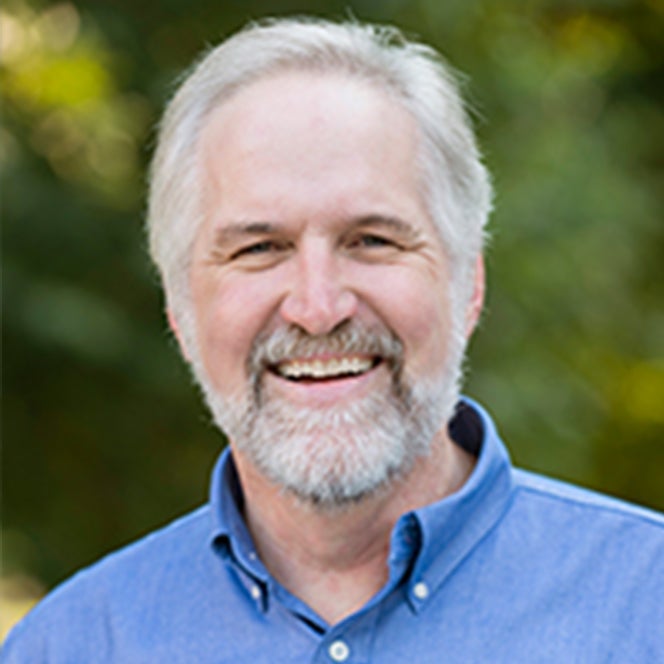
John Gardner
Professor Emeritus, Mech & Biomed Eng
John Gardner is a professor of mechanical & biomedical engineering emeritus at Boise State where his research and teaching focused on the integration and control of energy systems. He led the Energy Efficiency Research Institute at Idaho’s Center for Advanced Energy Studies and directed the regional Industrial Assessment Center. Dr. Gardner’s career has spanned nearly 3 decades, with his work at Boise State since 2000. He has published 2 textbooks and over 60 peer reviewed research papers and 3 patents.
Boise State UniversityJohn Gardner is a professor of mechanical & biomedical engineering emeritus at Boise State where his research and teaching focused on the integration and control of energy systems. He led the Energy Efficiency Research Institute at Idaho’s Center for Advanced Energy Studies and directed the regional Industrial Assessment Center. Dr. Gardner’s career has spanned nearly 3 decades, with his work at Boise State since 2000. He has published 2 textbooks and over 60 peer reviewed research papers and 3 patents.
-

Steve Hall
Lecturer, Economics
Steve Hall is a lecturer in the Department of Economics at Boise State University, teaching courses in microeconomic principles. Steve has also co-taught a course on Economics and the Environment for first year students, and assisted undergraduate researchers in their capstone projects. His master’s thesis, Opportunities and Obstacles in the Transition to a Distributed Network of Rooftop Solar, simulated the development of a solar network covering all available rooftop area in Ada County, Idaho. In the energy sector, his research interests include the full life-cycle costs of sustainable energy, energy storage, and integrating clean energy plans into the energy grid. Steve’s other research interests include complexity, machine learning, the economy as an ecosystem, and spatial econometrics.
Boise State UniversitySteve Hall is a lecturer in the Department of Economics at Boise State University, teaching courses in microeconomic principles. Steve has also co-taught a course on Economics and the Environment for first year students, and assisted undergraduate researchers in their capstone projects. His master’s thesis, Opportunities and Obstacles in the Transition to a Distributed Network of Rooftop Solar, simulated the development of a solar network covering all available rooftop area in Ada County, Idaho. In the energy sector, his research interests include the full life-cycle costs of sustainable energy, energy storage, and integrating clean energy plans into the energy grid. Steve’s other research interests include complexity, machine learning, the economy as an ecosystem, and spatial econometrics.
-

Mustafa Mashal
Assistant Professor, Civ & Env Eng
Mustafa Mashal is an Assistant Professor in the Department of Civil and Environmental Engineering at Idaho State University (ISU). He received his PhD, MS, and BS in civil engineering with a focus on Structural and Earthquake Engineering, from the University of Canterbury in New Zealand, State University of New York (SUNY) at Buffalo in the United States, and Kabul University in Afghanistan, respectively. Dr. Mashal is a registered Professional Engineer (P.E.) in Idaho, a Chartered Professional Engineer (CPEng) and International Professional Engineer (IntPE) in New Zealand (buildings/bridges), and is certified by Structural Engineering Certification Board (SECB) in the United States.
Idaho State UniversityMustafa Mashal is an Assistant Professor in the Department of Civil and Environmental Engineering at Idaho State University (ISU). He received his PhD, MS, and BS in civil engineering with a focus on Structural and Earthquake Engineering, from the University of Canterbury in New Zealand, State University of New York (SUNY) at Buffalo in the United States, and Kabul University in Afghanistan, respectively. Dr. Mashal is a registered Professional Engineer (P.E.) in Idaho, a Chartered Professional Engineer (CPEng) and International Professional Engineer (IntPE) in New Zealand (buildings/bridges), and is certified by Structural Engineering Certification Board (SECB) in the United States.
-
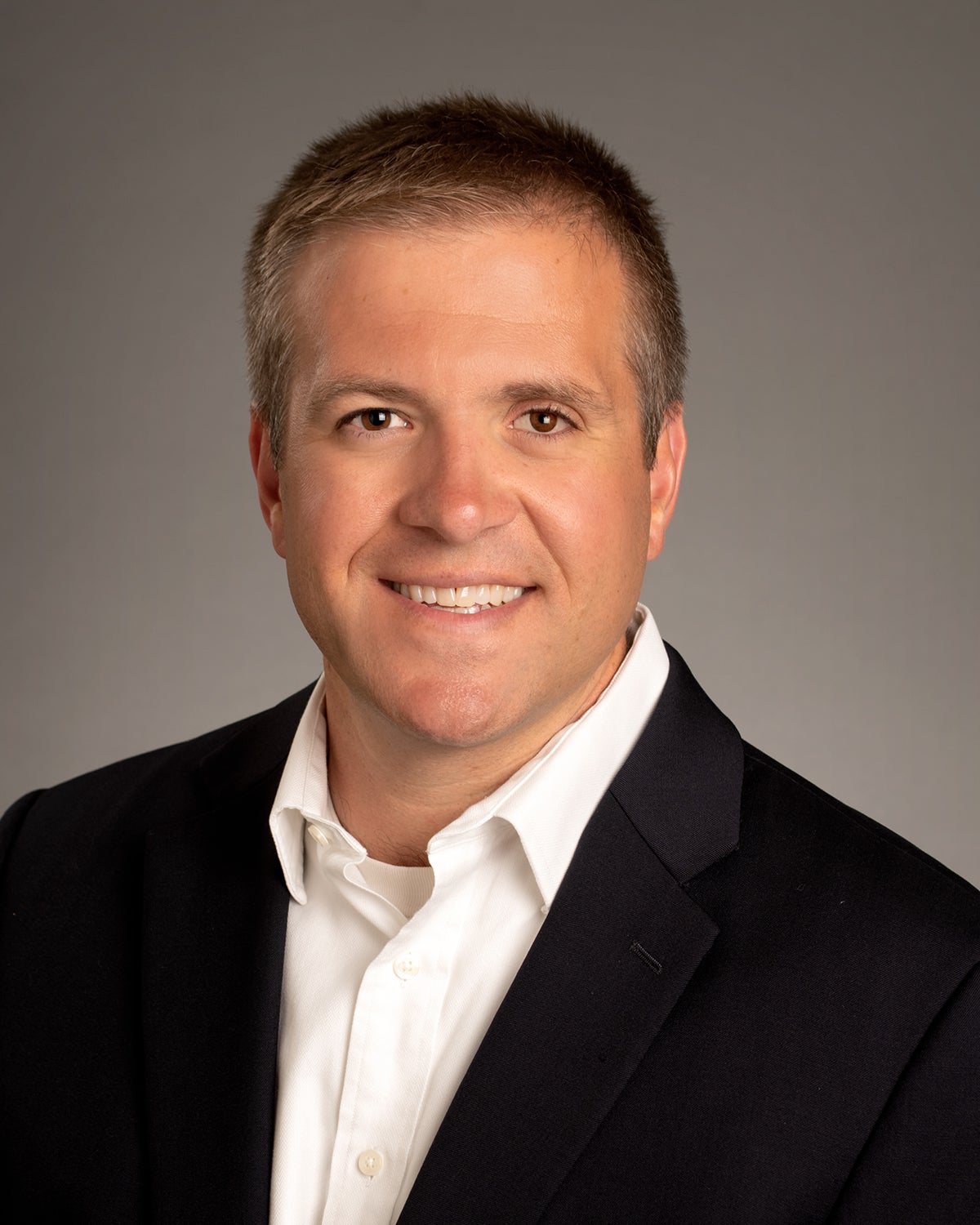
Nic Miller
Executive Director, Venture College
Nic Miller leads the Venture College, where students acquire entrepreneurial skills and apply those skills in launching new ventures. Prior to joining Boise State University, Nic was the Director of Economic Development for the City of Boise. In this role, Nic helped to launch Trailhead, downtown Boise’s premier co-working space and startup hub. He also led the City’s efforts in business recruitment, bringing over 1,000 jobs to the Boise area. During Nic’s five years in his role at the City of Boise, there was significant private investment made via innovative public-private partnerships, resulting in increased job creation and economic growth. Nic has experience in workforce development, education, and economic development through public and private sector work, as well as startup experience in the agricultural technology industry. Nic earned his BA in History from the University of Idaho.
Boise State UniversityNic Miller leads the Venture College, where students acquire entrepreneurial skills and apply those skills in launching new ventures. Prior to joining Boise State University, Nic was the Director of Economic Development for the City of Boise. In this role, Nic helped to launch Trailhead, downtown Boise’s premier co-working space and startup hub. He also led the City’s efforts in business recruitment, bringing over 1,000 jobs to the Boise area. During Nic’s five years in his role at the City of Boise, there was significant private investment made via innovative public-private partnerships, resulting in increased job creation and economic growth. Nic has experience in workforce development, education, and economic development through public and private sector work, as well as startup experience in the agricultural technology industry. Nic earned his BA in History from the University of Idaho.
-
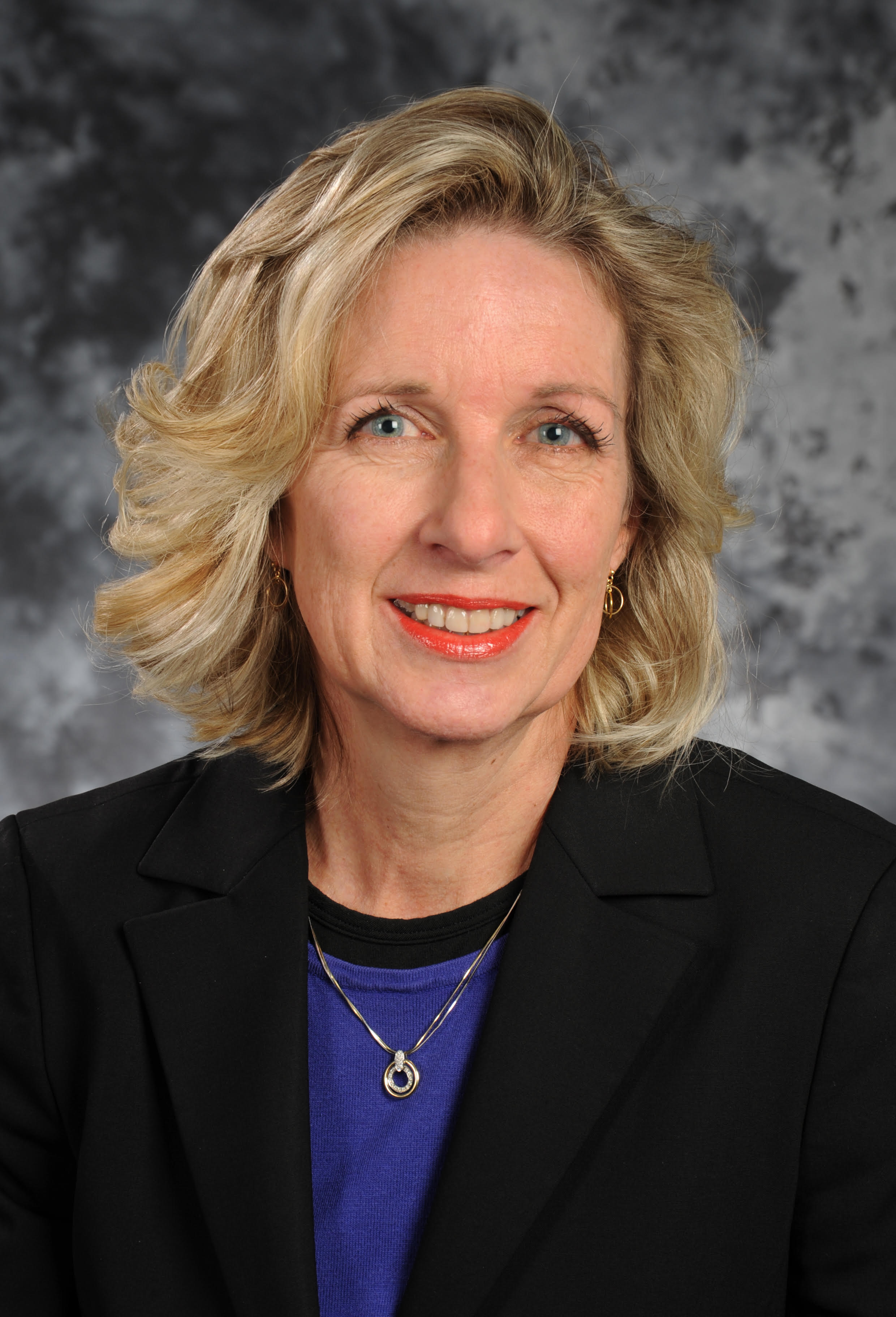
Cheryl O’Brien
Professional Engineer
Cheryl O’Brien, P.E. has worked for 30+ years at the Idaho National Laboratory in engineering and management for various contractors (Westinghouse, Lockheed-Martin, Bechtel, Battelle). As one of the few women in senior management, she directed Engineering Programs, including criticality and nuclear safety, design and analysis. Her management career has included bringing green building design and clean energy advocacy to the Laboratory as one of the first LEEDTM Accredited Professionals in Idaho. With bachelor’s and master’s degrees in Civil Engineering, her technical expertise is natural hazard structural analysis. She is currently pursuing a Doctorate of Arts in Political Science (anticipated 2020). Her political science expertise is directed toward state legislative adoption of supportive nuclear energy policy, and understanding attitudes and risk perception.
Idaho State Univ. & Idaho National LabCheryl O’Brien, P.E. has worked for 30+ years at the Idaho National Laboratory in engineering and management for various contractors (Westinghouse, Lockheed-Martin, Bechtel, Battelle). As one of the few women in senior management, she directed Engineering Programs, including criticality and nuclear safety, design and analysis. Her management career has included bringing green building design and clean energy advocacy to the Laboratory as one of the first LEEDTM Accredited Professionals in Idaho. With bachelor’s and master’s degrees in Civil Engineering, her technical expertise is natural hazard structural analysis. She is currently pursuing a Doctorate of Arts in Political Science (anticipated 2020). Her political science expertise is directed toward state legislative adoption of supportive nuclear energy policy, and understanding attitudes and risk perception.
-
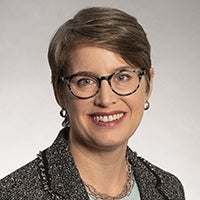
Krista Paulsen
Associate Professor, Urban Studies
Dr. Krista Paulsen is Associate Professor of Urban Studies in the School of Public Service. She received her Ph.D. in Sociology from the University of California at Santa Barbara in 2000. There she examined how Central California communities responded to oil development on- and offshore, with an eye to how social and cultural dimensions of places shaped their trajectories of energy development. She continues to examine how places, whether regions, cities or neighborhoods, develop and maintain distinct cultures and practices, and how economic, environmental, and demographic changes are understood by residents. She is most recently the author of Introduction to Cities: How Place and Space Shape Human Experience 2e (Wiley-Blackwell 2018; with Xiangming Chen and Anthony Orum) and co-editor of Home: International Perspectives on Culture, Identity and Belonging (Peter Lang Publishers 2013; with Margarethe Kusenbach).
Boise State UniversityDr. Krista Paulsen is Associate Professor of Urban Studies in the School of Public Service. She received her Ph.D. in Sociology from the University of California at Santa Barbara in 2000. There she examined how Central California communities responded to oil development on- and offshore, with an eye to how social and cultural dimensions of places shaped their trajectories of energy development. She continues to examine how places, whether regions, cities or neighborhoods, develop and maintain distinct cultures and practices, and how economic, environmental, and demographic changes are understood by residents. She is most recently the author of Introduction to Cities: How Place and Space Shape Human Experience 2e (Wiley-Blackwell 2018; with Xiangming Chen and Anthony Orum) and co-editor of Home: International Perspectives on Culture, Identity and Belonging (Peter Lang Publishers 2013; with Margarethe Kusenbach).
-

Thomas Ptak
Assistant Professor, Geography
Thomas Ptak is an Assistant Professor of Geography at University of Idaho and a human-environment geographer. His work is driven by a strong motivation to help solve some of the world’s most pressing human and ecological challenges, which are often embedded within processes linked to the production, distribution, consumption and storage of energy. The range of challenges covered by Dr. Ptak’s research include human-induced climate change, energy centered inequality, access and exploitation of resources, uneven, unsustainable and inequitable development, water, food & energy security.
University of IdahoThomas Ptak is an Assistant Professor of Geography at University of Idaho and a human-environment geographer. His work is driven by a strong motivation to help solve some of the world’s most pressing human and ecological challenges, which are often embedded within processes linked to the production, distribution, consumption and storage of energy. The range of challenges covered by Dr. Ptak’s research include human-induced climate change, energy centered inequality, access and exploitation of resources, uneven, unsustainable and inequitable development, water, food & energy security.
-
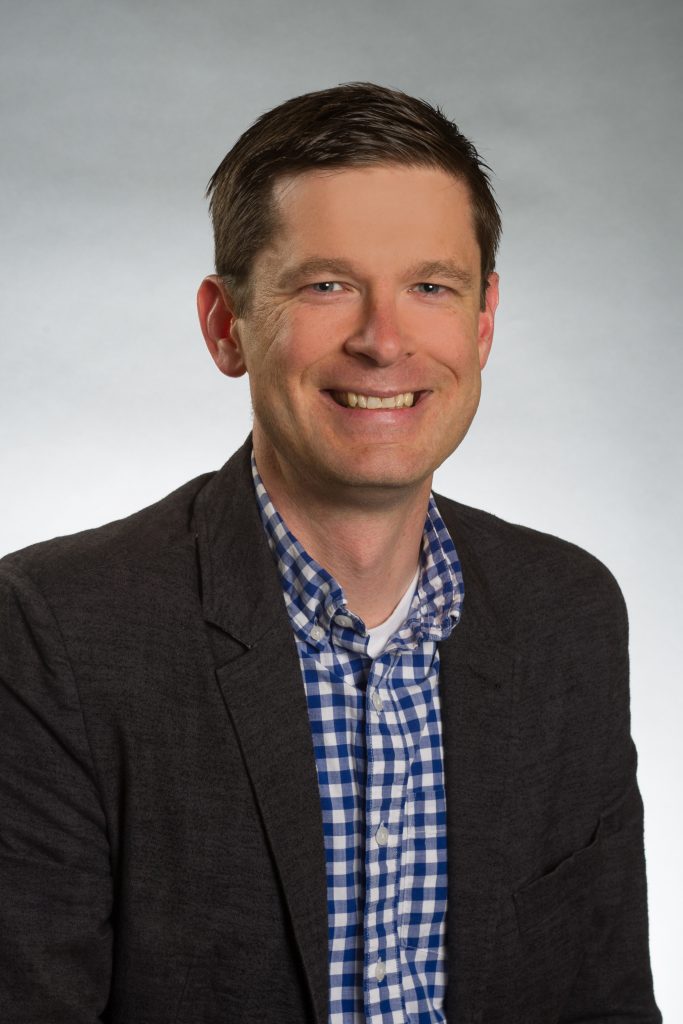
Bob Reinhardt
Assistant Professor, History
Bob H. Reinhardt is Assistant Professor in the Department of History, where his work includes the history of the American West and environmental history. His current project, An Atlas of Drowned Towns, studies the history of community displacement and disappearance caused by hydroelectric projects in the American West. Bob earned a PhD from the University of California, Davis, an MA from the University of Oregon, and a BA with honors from Willamette University. His professional experience includes serving as the Executive Director of the Willamette Heritage Center, a postdoctoral fellowship at Carnegie Mellon University, and teaching positions at Western Oregon University and Willamette University. Bob is also the founder and director of Boise State University’s Working History Center.
Boise State UniversityBob H. Reinhardt is Assistant Professor in the Department of History, where his work includes the history of the American West and environmental history. His current project, An Atlas of Drowned Towns, studies the history of community displacement and disappearance caused by hydroelectric projects in the American West. Bob earned a PhD from the University of California, Davis, an MA from the University of Oregon, and a BA with honors from Willamette University. His professional experience includes serving as the Executive Director of the Willamette Heritage Center, a postdoctoral fellowship at Carnegie Mellon University, and teaching positions at Western Oregon University and Willamette University. Bob is also the founder and director of Boise State University’s Working History Center.
-

Tara Righetti
Assoc. Prof, Energy Res Mgmt & Dev
Tara Righetti is the Director for the Professional Land Management concentration within the academic program for Energy Resource Management and Development at the University of Wyoming. Prior to joining the University of Wyoming College of Law and SER faculty in the fall of 2014, she served as CEO and general counsel of a privately owned upstream oil and gas company. She is a member of the state bars of Texas and California, and a Certified Professional Landman and member of AAPL.
University of WyomingTara Righetti is the Director for the Professional Land Management concentration within the academic program for Energy Resource Management and Development at the University of Wyoming. Prior to joining the University of Wyoming College of Law and SER faculty in the fall of 2014, she served as CEO and general counsel of a privately owned upstream oil and gas company. She is a member of the state bars of Texas and California, and a Certified Professional Landman and member of AAPL.
-
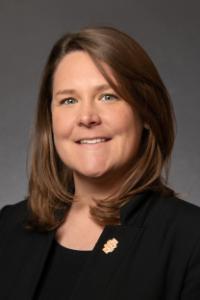
Sarah Robey
Assistant Professor, History
Dr. Sarah Robey is an Assistant Professor in the History of Energy at Idaho State University. She holds a PhD in History from Temple University with an emphasis on the history of science and technology and nuclear history. Her current book project, Atomic Americans: Citizens in a Nuclear State, examines how the threat of nuclear war changed American ideas about participatory democracy, the role of the state, and civic responsibility during the early Cold War (Cornell University Press, forthcoming). Robey will also have a chapter on industry-sponsored science education films included in the upcoming energy humanities collection, American Energy Cinema (University of West Virginia Press, forthcoming). Robey is beginning work on her second book-length manuscript, a regional history of Idaho National Laboratory and its place in the landscape of the Nuclear West.
Idaho State UniversityDr. Sarah Robey is an Assistant Professor in the History of Energy at Idaho State University. She holds a PhD in History from Temple University with an emphasis on the history of science and technology and nuclear history. Her current book project, Atomic Americans: Citizens in a Nuclear State, examines how the threat of nuclear war changed American ideas about participatory democracy, the role of the state, and civic responsibility during the early Cold War (Cornell University Press, forthcoming). Robey will also have a chapter on industry-sponsored science education films included in the upcoming energy humanities collection, American Energy Cinema (University of West Virginia Press, forthcoming). Robey is beginning work on her second book-length manuscript, a regional history of Idaho National Laboratory and its place in the landscape of the Nuclear West.
-
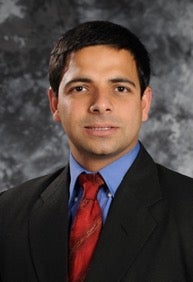
Piyush Sabharwall
Research Scientist
Dr. Piyush Sabharwall is a Nuclear Staff Research Scientist working in the Nuclear System Design and Analysis Division at Idaho National Laboratory (INL). He has more than 12 years of research and development experience in nuclear/thermal engineering and has been involved in several academic, industrial, and cross-discipline national laboratory research projects. He has served as the INL lead for numerous partnerships. Dr. Sabharwall has expertise in heat transfer, fluid mechanics, thermal design, thermodynamics, energy systems, and nuclear safety analyses. He has authored two books, contributed chapters to technical books on advanced reactors and thermal systems and process heat transfer, and published over 120 peer-reviewed publications. He holds an Adjunct Associate Professor appointment in the Department of Mechanical Engineering at Texas A&M University and serves on the ASME Heat Transfer Division (K-9 and K-13 committees). He is currently the OPD Chair and Executive Committee Member in ANS THD division. He has consulted for industries both nationally and internationally.
Idaho National LabDr. Piyush Sabharwall is a Nuclear Staff Research Scientist working in the Nuclear System Design and Analysis Division at Idaho National Laboratory (INL). He has more than 12 years of research and development experience in nuclear/thermal engineering and has been involved in several academic, industrial, and cross-discipline national laboratory research projects. He has served as the INL lead for numerous partnerships. Dr. Sabharwall has expertise in heat transfer, fluid mechanics, thermal design, thermodynamics, energy systems, and nuclear safety analyses. He has authored two books, contributed chapters to technical books on advanced reactors and thermal systems and process heat transfer, and published over 120 peer-reviewed publications. He holds an Adjunct Associate Professor appointment in the Department of Mechanical Engineering at Texas A&M University and serves on the ASME Heat Transfer Division (K-9 and K-13 committees). He is currently the OPD Chair and Executive Committee Member in ANS THD division. He has consulted for industries both nationally and internationally.
-

Irene van Woerden
Assistant Professor, Statistics
Dr. van Woerden is an Assistant Professor/Statistician at Idaho State University, where she is interested in examining community preferences on nuclear energy project siting. Dr. van Woerden has experience with a wide variety of analytical methods and datasets and has peer-reviewed publications in many areas, such as how environmental contaminants are associated with demographics and BMI, a validation study for physical activity measurements obtained using ecological momentary assessment (EMA), and how objective measures of GPA are associated with food insecurity. Dr. van Woerden obtained her PhD from Arizona State University (ASU) in 2019 with a focus on statistical analysis of college student food insecurity. She has two MS degrees in statistics, and a BS in statistics and chemistry. Dr. van Woerden teaches the incoming PhD students statistics.
Idaho State UniversityDr. van Woerden is an Assistant Professor/Statistician at Idaho State University, where she is interested in examining community preferences on nuclear energy project siting. Dr. van Woerden has experience with a wide variety of analytical methods and datasets and has peer-reviewed publications in many areas, such as how environmental contaminants are associated with demographics and BMI, a validation study for physical activity measurements obtained using ecological momentary assessment (EMA), and how objective measures of GPA are associated with food insecurity. Dr. van Woerden obtained her PhD from Arizona State University (ASU) in 2019 with a focus on statistical analysis of college student food insecurity. She has two MS degrees in statistics, and a BS in statistics and chemistry. Dr. van Woerden teaches the incoming PhD students statistics.
-
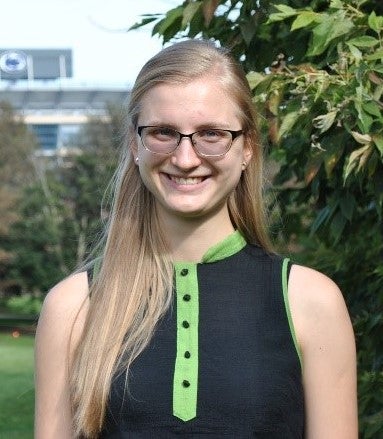
Veronika Vazhnik
Fellow
Veronika Vazhnik is a fellow at Idaho National Laboratory (INL), researching agricultural producer decision-making and spatial optimization in the Data and Software Sciences department. At the lab, she has been leading Sustainability engagement programs for the employees and the community. She recently completed her Ph.D. in BioRenewable Systems with a minor in Operations Research at Penn State University. In energy research, her interests are in energy system sustainability assessment, and the technology and policy for a bio-based economy. A native of Belarus, she completed her B.Sc. degree in Liberal Arts and Sciences from the University of Freiburg, Germany, focusing on Earth and Environmental Sciences, with an exchange year in Civil and Environmental Engineering at the University of Hong Kong.
Idaho National LabVeronika Vazhnik is a fellow at Idaho National Laboratory (INL), researching agricultural producer decision-making and spatial optimization in the Data and Software Sciences department. At the lab, she has been leading Sustainability engagement programs for the employees and the community. She recently completed her Ph.D. in BioRenewable Systems with a minor in Operations Research at Penn State University. In energy research, her interests are in energy system sustainability assessment, and the technology and policy for a bio-based economy. A native of Belarus, she completed her B.Sc. degree in Liberal Arts and Sciences from the University of Freiburg, Germany, focusing on Earth and Environmental Sciences, with an exchange year in Civil and Environmental Engineering at the University of Hong Kong.
-

Thad Welch
Professor, Elec & Computer Engineering
Boise State University -
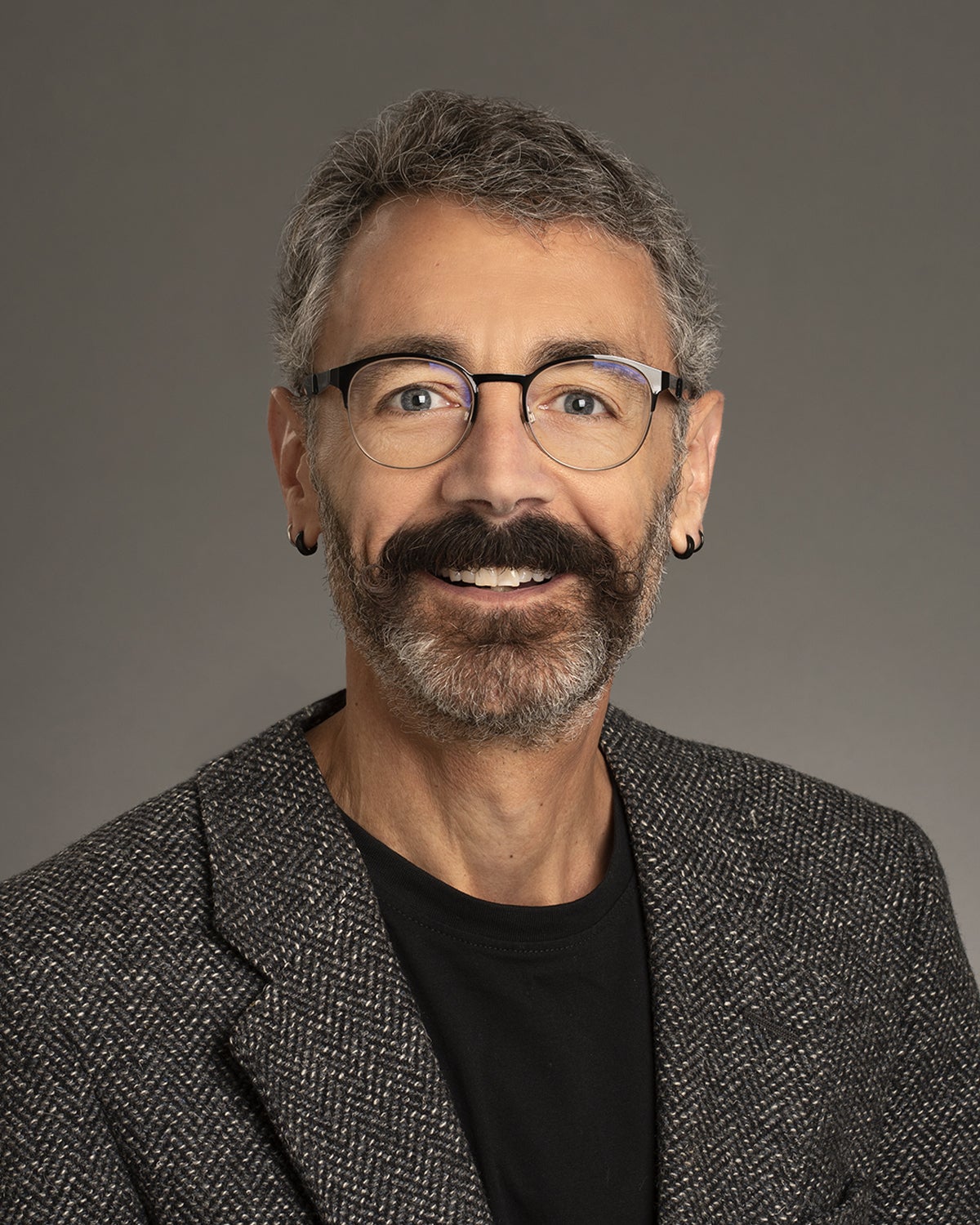
Don Winiecki
Prof., Org Perf & Workplace Learning
Don Winiecki is a Professor in Organizational Performance and Workplace Learning in the College of Engineering. His research and development work is oriented to the use of ethnographic methods in critical needs assessments, analytical modeling, and the characterization of social-technical systems. His teaching focuses on incorporating ethics and systemic morality into the professional practice of engineering and computer science.
Boise State UniversityDon Winiecki is a Professor in Organizational Performance and Workplace Learning in the College of Engineering. His research and development work is oriented to the use of ethnographic methods in critical needs assessments, analytical modeling, and the characterization of social-technical systems. His teaching focuses on incorporating ethics and systemic morality into the professional practice of engineering and computer science.
-

Claire Xiong
Associate Professor, Mat. Sci. & Eng.
Claire Xiong is an Associate Professor in the Micron School of Materials Science and Engineering (MSMSE), and Graduate Program Coordinator for MSMSE at Boise State University. Dr Xiong’s research focuses on energy storage systems including Li-ion and Na-ion batteries. She received her BE degree in Applied Chemistry, MS degree in Inorganic Chemistry, and her Ph.D. in Electroanalytical Chemistry from the University of Pittsburgh. Between 2008 and 2012, she conducted postdoctoral work at Harvard University and Argonne National Laboratory where her research involved electrochemical characterization of micro-fabricated cathode materials for micro-solid oxide fuel cells and the development of novel nanostructured electrode materials for rechargeable batteries. Dr. Xiong received NSF CAREER Award in 2015 and is a Scialog Fellow (2017-2019).
Boise State UniversityClaire Xiong is an Associate Professor in the Micron School of Materials Science and Engineering (MSMSE), and Graduate Program Coordinator for MSMSE at Boise State University. Dr Xiong’s research focuses on energy storage systems including Li-ion and Na-ion batteries. She received her BE degree in Applied Chemistry, MS degree in Inorganic Chemistry, and her Ph.D. in Electroanalytical Chemistry from the University of Pittsburgh. Between 2008 and 2012, she conducted postdoctoral work at Harvard University and Argonne National Laboratory where her research involved electrochemical characterization of micro-fabricated cathode materials for micro-solid oxide fuel cells and the development of novel nanostructured electrode materials for rechargeable batteries. Dr. Xiong received NSF CAREER Award in 2015 and is a Scialog Fellow (2017-2019).
-

John Ziker
Professor and Chair, Anthropology
John P. Ziker is a Professor and the Chair of the Anthropology Department at Boise State University. He currently heads the social science leg of NSF Track 2: Collaborative Research: Interactions of environmental and land surface change, animals, infrastructure, and peoples of the Arctic. This project has a focus on the Yamal Peninsula of western Siberia, a region of intensive natural gas development and traditional Nenets reindeer herding. His research with indigenous peoples in Siberia has been featured in the journals such as Science, Human Ecology and Sustainability Science. He has conducted fieldwork in the Taimyr district, the north Baikal region, and the Tuva Republic in Siberia (the Russian Federation). He is also involved in studies of higher education faculty in STEM departments and socio-ecological dynamics of the Sena people in the buffer zone of Gorongosa National Park, Mozambique.
Boise State UniversityJohn P. Ziker is a Professor and the Chair of the Anthropology Department at Boise State University. He currently heads the social science leg of NSF Track 2: Collaborative Research: Interactions of environmental and land surface change, animals, infrastructure, and peoples of the Arctic. This project has a focus on the Yamal Peninsula of western Siberia, a region of intensive natural gas development and traditional Nenets reindeer herding. His research with indigenous peoples in Siberia has been featured in the journals such as Science, Human Ecology and Sustainability Science. He has conducted fieldwork in the Taimyr district, the north Baikal region, and the Tuva Republic in Siberia (the Russian Federation). He is also involved in studies of higher education faculty in STEM departments and socio-ecological dynamics of the Sena people in the buffer zone of Gorongosa National Park, Mozambique.